Pay or Okay: The Rise of Privacy Paywall and Implications for Compliance
UniConsent
Table des matières
The "Pay or Okay" approach, also known as "Pay or Consent," operates on a binary choice. Users can either accept the use of their data for advertising or pay a premium to avoid data tracking. This model has been implemented by notable companies, including Meta, which rolled out subscription options in late 2023. Users of platforms like Facebook and Instagram could pay up to €251.88 annually to opt out of targeted advertising.
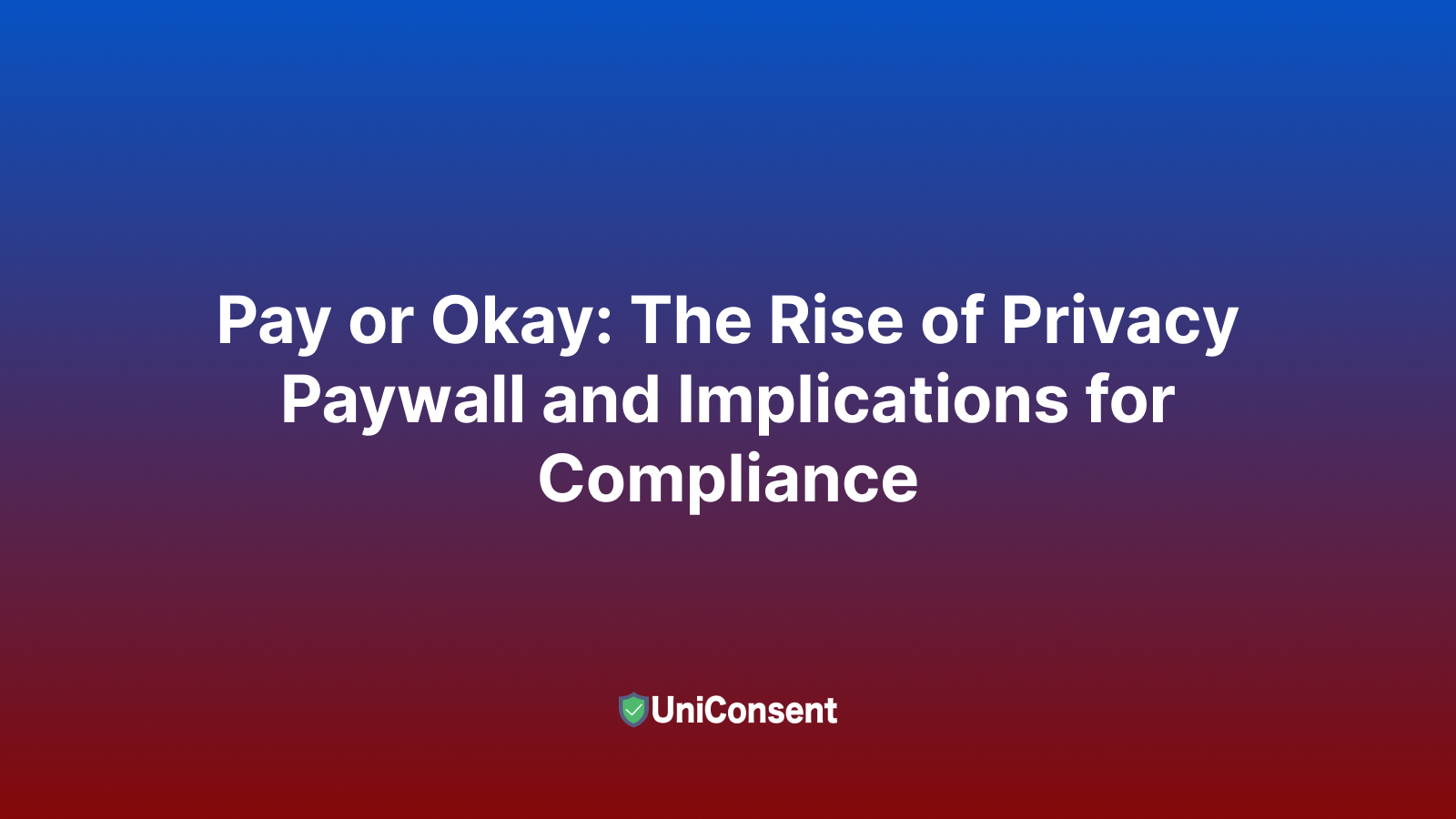 Pay or Okay: The Rise of Privacy Paywall and Implications for Compliance
Pay or Okay: The Rise of Privacy Paywall and Implications for Compliance
While this model appears to empower users with more choices, it’s not without controversy. Critics argue that this approach commodifies privacy, turning it into a privilege rather than a fundamental right. For businesses adopting this model, there are substantial regulatory hurdles to navigate.
Understanding GDPR Requirements
The GDPR stipulates that consent must be freely given, specific, informed, and unambiguous. Under this framework, the European Data Protection Board (EDPB) has expressed concerns about the "Pay or Okay" model. In April 2024, the EDPB stated that:
- Simply offering a binary choice between consent and payment may not meet GDPR requirements for valid consent.
- Users must have a genuinely free alternative to consenting to data processing.
- Consent mechanisms must consider power imbalances between users and service providers.
- Granular consent options should allow users to accept or reject specific data processing purposes.
Regulators in individual countries have also weighed in. CNIL (France) and AEPD (Spain) emphasize that alternatives to cookies or data tracking must be fair and reasonable, with CNIL highlighting that fees charged should reflect the actual cost of the service.
Challenges for Businesses
For companies exploring the "Pay or Okay" model, companies must ensure that non-consent options (such as subscription fees) are not exploitative and that the fees are proportional to the actual cost of providing the service. Then, clearly communicating user data and providing detailed consent options can help companies meet GDPR requirements while increasing user transparency. In addition, maintaining detailed records of user consent and payment options is essential to demonstrate compliance during audits.
Current Pay or Okay Adoption and Its Impact on Users
Meta’s implementation of the "Pay or Okay" model has been met with mixed reactions. Privacy advocates warn that if this practice becomes widespread, it could create a two-tier internet where privacy is reserved for those who can afford it. Proponents argue that it provides a viable path for monetizing free services without relying solely on advertising revenue.
From a user perspective, the model places individuals in a dilemma. Should they pay for their privacy or accept targeted advertising as the cost of free content? This choice is particularly significant in regions where disposable income varies widely, raising questions about fairness and inclusivity.
How to Comply with Privacy Laws
As the "Pay or Okay" model gains traction, in order to comply with GDPR and other privacy laws, companies should:
- Providing genuinely free alternatives to data processing consent.
- Ensuring that any fees charged for privacy are reasonable and proportional.
- Enhancing transparency in consent mechanisms and privacy policies.
- Implementing robust consent management systems to streamline compliance.
UniConsent’s Consent Management Platform (CMP) helps companies achieve GDPR compliance while respecting user preferences. Features like customizable cookie banners, granular consent options, and integration with the IAB Transparency and Consent Framework make UniConsent an ideal partner for navigating this evolving landscape.
About UniConsent
UniConsent is a part of Transfon's privacy-first User Experience Platform, serving tens of millions of users daily to provide a seamless privacy experience for both users and publishers in the age of post-GDPR. Contact us to know more: hello@uniconsent.com
Activate Google Consent Mode UniConsent to enhance the accuracy of your Google Analytics and Google Ads conversion data.
Set up Google Consent Mode →Commencez à rendre votre site web et votre application conformes au RGPD de l'UE, au CPRA des États-Unis, au PIPEDA de la CA, etc.
S'inscrireRessources de la Plateforme de Gestion des Consents
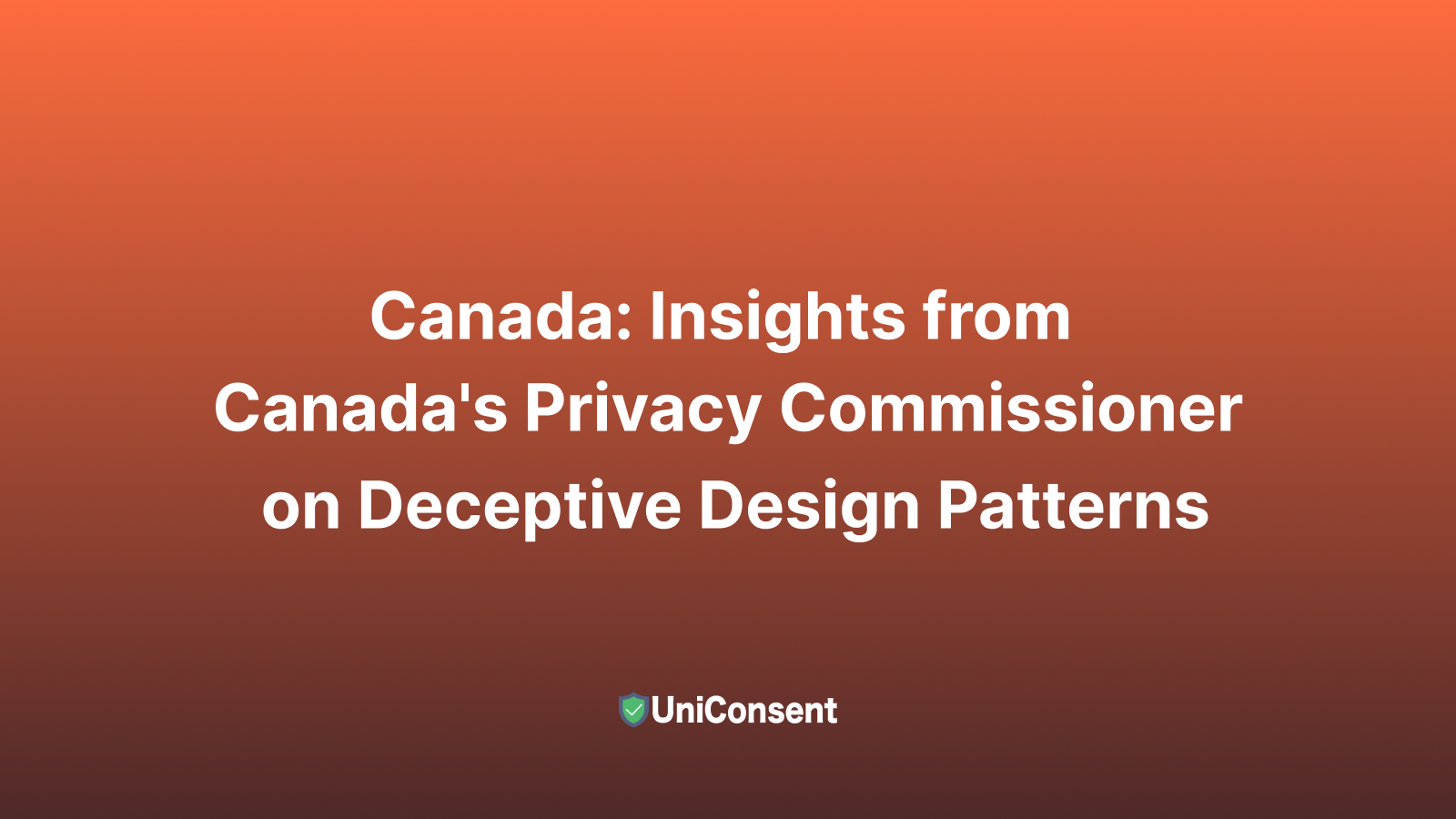
Canada: Aperçu du Commissaire à la protection de la vie privée du Canada sur la lutte contre les motifs de conception trompeurs
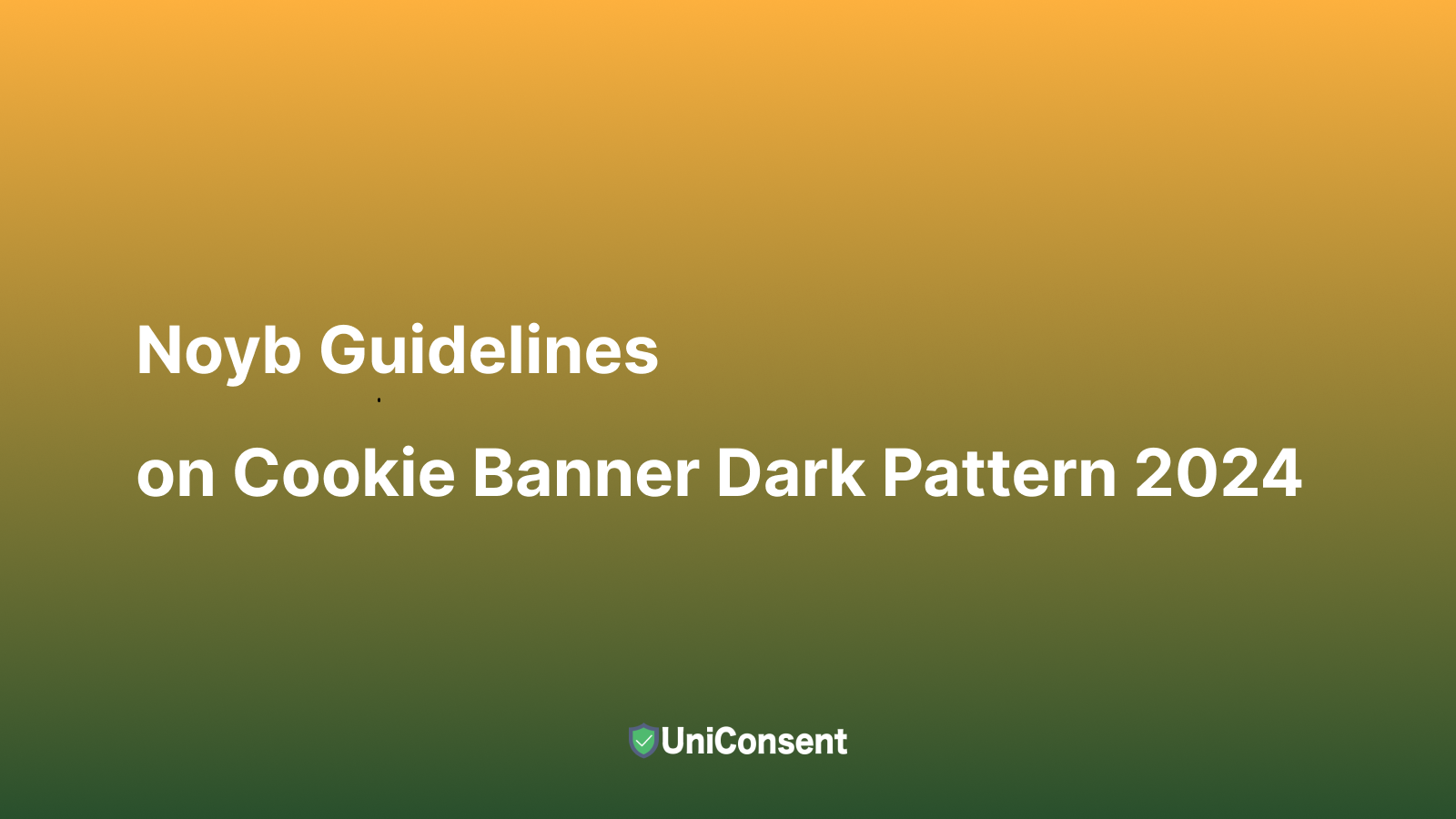
Lignes directrices de Noyb sur le motif sombre de la bannière de cookies 2024
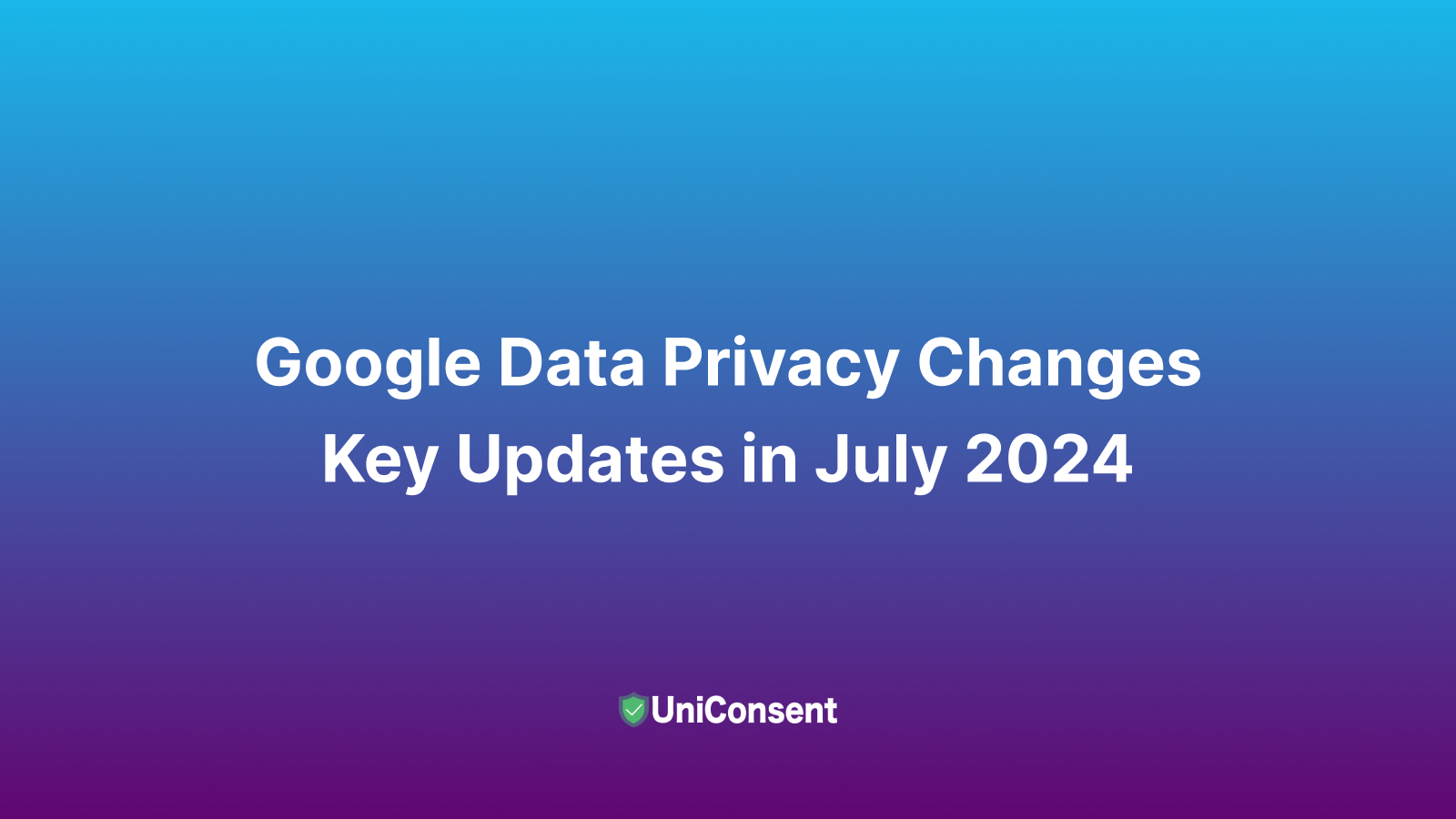
Nouveau changement de confidentialité des données de Google en juillet 2024
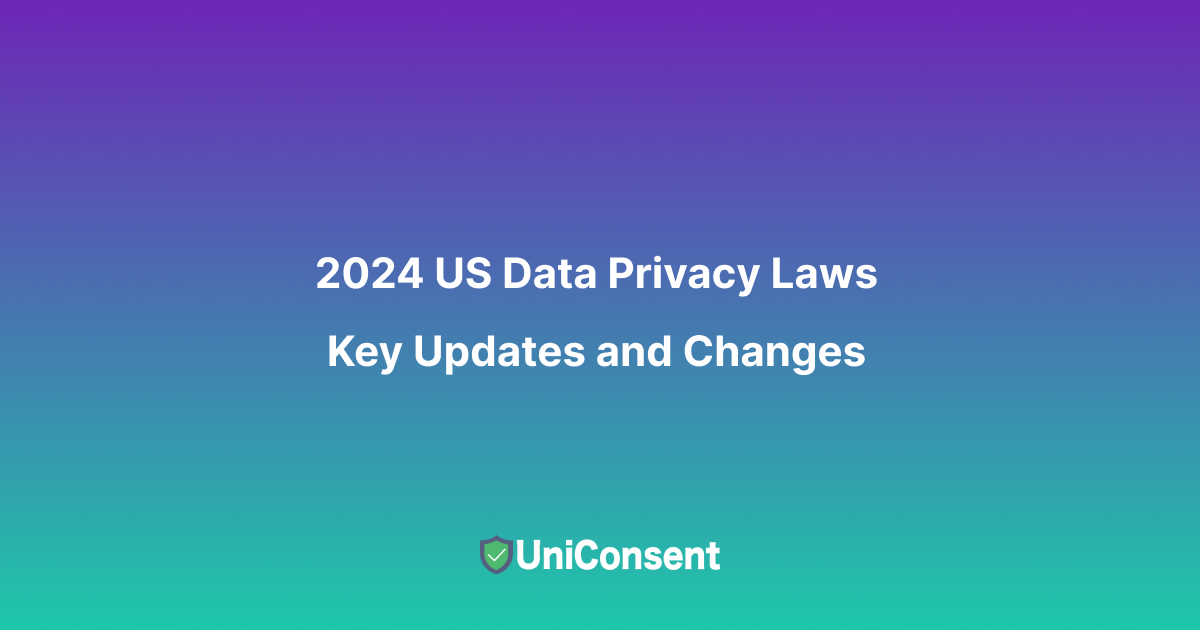
Lois Américaines Sur la Confidentialité Des Données de 2024: Principales Mises à Jour ET Modifications
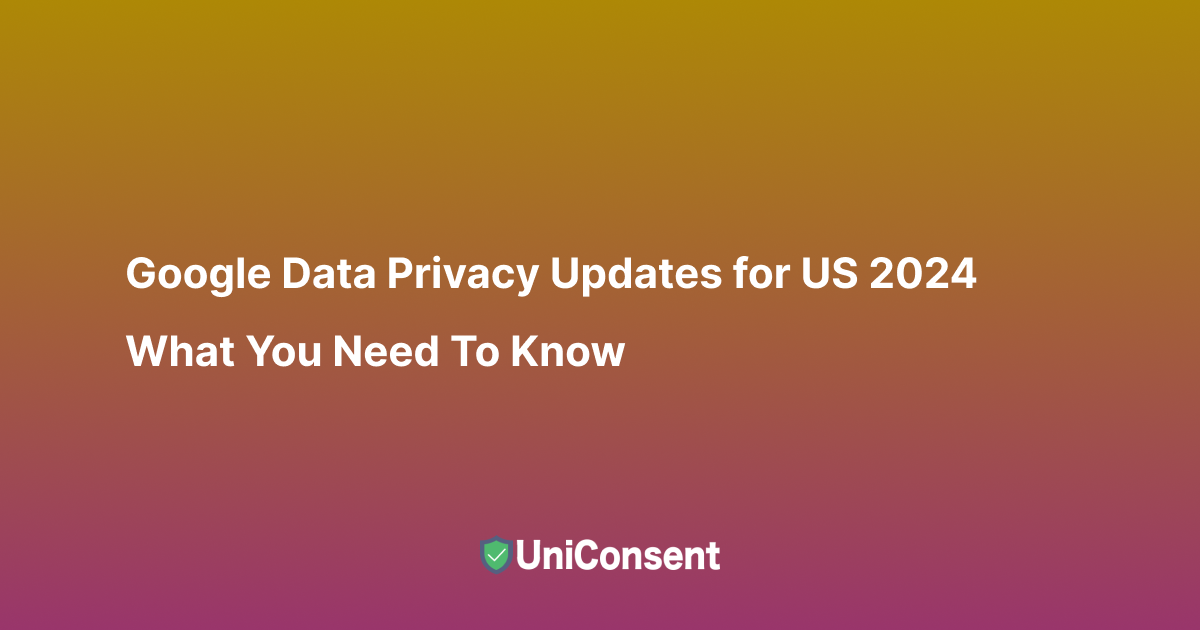
Mises à Jour de Google Sur la Confidentialité Des Données Pour Les éTats-Unis 2024: Ce Que Vous Devez Savoir
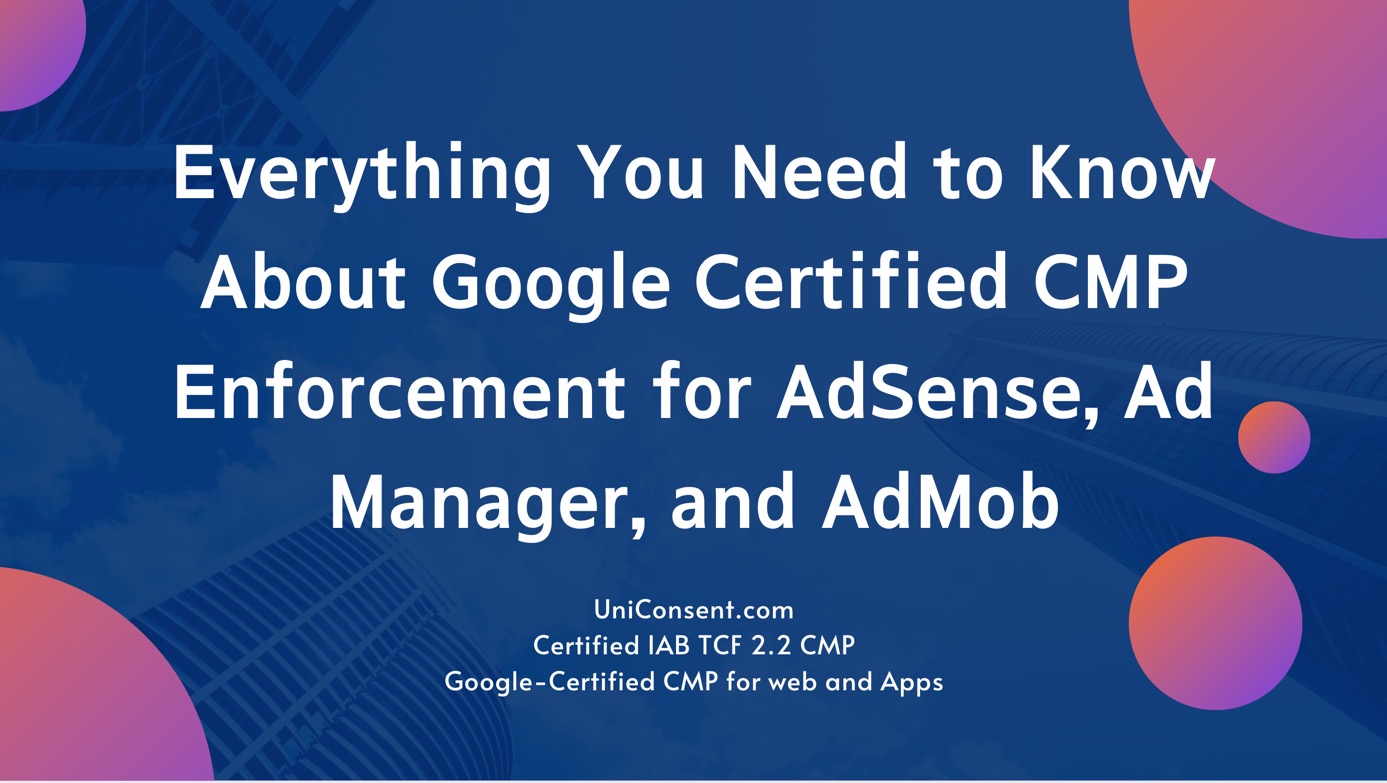
Google Certified CMP : Mise en œuvre de Google Certified CMP pour AdSense, Ad Manager et AdMob
Commencez à rendre votre site web et votre application conformes au RGPD de l'UE, au CPRA des États-Unis, au PIPEDA de la CA, etc.
S'inscrire